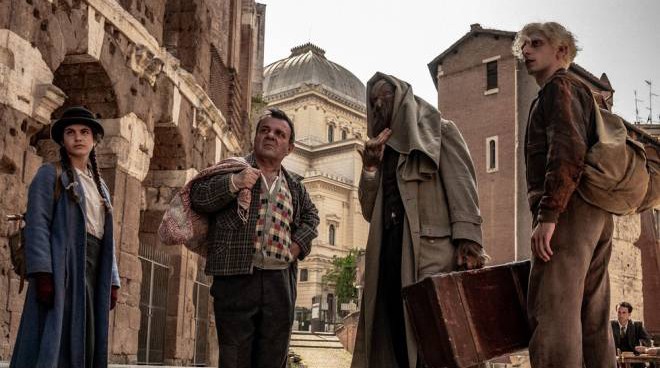Mad Fate - fatalistic insanity
Mad Fate might appear at first as a step back in Soi Cheang's career, but its idiosyncrasy, weird heterogeneous shape makes it a very entertaining viewing experience.
Limbo, Cheang's 2021 black and white noir centered on a crime story involving a serial killer was also universally deemed to be a new turn in the filmography of Johnnie To's protégé, Soi Cheang, perhaps more famous for his Monkey King saga. It was an atmospheric, dark film. Mad Fate's opening scene hardly feels touched by the same hand, introducing a black comedic scene. Even the visual style of the film, the storytelling seems diametrically opposite: very saturated, neon-filled frames, a very prominent musical commentary (that employs, very rightfully, the incipit of Beethoven's fifth as a leitmotif). Yet the themes are not too distant: much like Limbo, Mad Fate features a serial killer character. A film with an ever-shifting atmosphere that spans from comedy, drama, some horror elements, as a result it is a multi-faceted work with a chaotic energy, inherited by the mental insanity of the protagonists, a fortune-teller who is on the constant verge of losing his mind in an effort to prevent calamities and bad fortunes to happen, a young kid with a clear psychotic disease, a serial killer in-the-making. On top of all that, the presence of a tangible supernatural element: fate.
The main aspect of Mad Fate is that it constantly shifts between a religious-supernatural dimension, in which destiny is prescribed, the God's will is unattainable, body possessions are possible, and a more grounded reality, the polluted streets of modern Hong Kong, a very real spree of gruesome murders and crimes, the tropes of the typical crime thriller genre. Very few films balance so bravely entertainment and the engagement of metaphysical concepts such as fatalism.
A consequence of the film's chaos and variety is that it does not have the same mastery and conception that Limbo had. Soi Cheang himself admitted to be overwhelmed by the screenplay by Yau Nai-hoi, unsure on how to approach it. This does not diminish the ambition of the work, definitely a peak example of absurdism in mainstream cinema.





Comments
Post a Comment